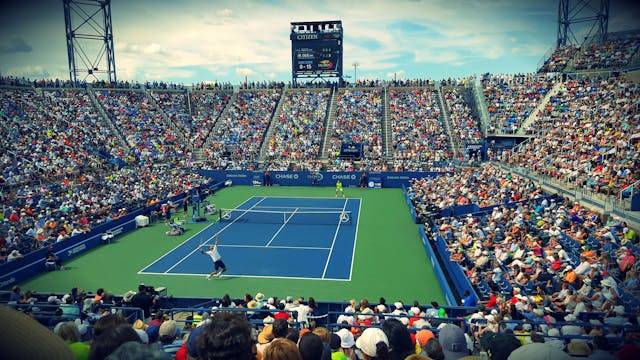When you are a beginner or an experienced player it’s necessary that we grasp the rules to get us closer to all of them deriving one hundred percent pleasure out of your games. How Many Games In A Table Tennis Match?
I am Atif and in this post, we are going to discuss Table tennis match structure. How a table tennis Match is played From Basic rules till advanced format of the matches. We will also consider other elements that affect the number of games in each competition and provide some tips on how you can win! Let’s get into the details!
Know the Basics of Table Tennis Matches

In table tennis games, matches are held as the best of series. In a best-of series, this installs the necessity of winning said the number of games that it would take to win in a standard match. That is considered a standard match, where best of 5 or course best of sevens are played depending on the divisions and leagues.
What Is a Game of Table Tennis?
Just before we delve into the match design, let’s go over what a contest is in table tennis. A match or game that is played to 11 points, and a player should win by at least 2 points. For this reason, if both players get 10 points, they are still playing when one player wins by two numbers, such as 12-10 or 14-12.
How Many Games Are Play out in a Table Tennis Match?
Now, let’s answer the big question: how many games are there in a match? The number of games can vary depending on the type of match or competition format:
- Winner of 5 games: In this kind of game, the first player to win 3 games wins the match. This is the most common rule in free play and many local tournaments are based on it.
- Winner of 7 games: In more advanced or professional tournaments, the match is played as the best of 7, meaning the first player to win 4 games wins the match. This format is often used in international competitions, such as the Olympic Games or World Championships.
Why Are There Two Match Formats?
The reason for having two match formats is to accommodate different skill levels and the length of the competition. A best-of-5 style is quicker and is best for club-level competitions or family games. A best-of-7 though is harder, and that format is built for elite players who are mentally well-equipped to get through a longer, stern test.
Scoring in Table Tennis
In order to grasp how games matter in a match, you must first understand scoring. Here’s a breakdown:
All games are played to 11 points.
Players must win by 2 points or more. Scores become tied at 10-10, however this advantage must be won by two clear points.
Scoring occurs on every rally
Its result is determined by the first player to win a certain number of games in that format. Being the game mode where one how won it, and so on until necessary, subsequently requiring those players are winning more times than enemy.
How to Keep Track of Games in a Match?
Tracking the number of games won by each player is simple. After each game, players switch sides, and the game count is recorded. When a player reaches the requisite number of game wins. (three or four, depending on whether match points are being counted) they have won the corresponding matches.
How Many Hours Does a Table Tennis Match Last?

The intensity of a table tennis match can vary heavily based on the total amount of games played, the skill level of the players, and how quick each game is. Here’s a basic breakdown of the matter:
- Best of 5 matches typically last between 20 and 30 minutes.
- Best of 7 matches can take 30 to 45 minutes or even longer, specially if the games are closely involved.
Matches which involve higher-level players may last more time due to their crafty plays and the physical nature of the sport.
Factors That Change the Number of Games in a Match
In addition to being best-of-5 or best-of-7, the number of games played is affected by several things including:
- Competition: Most professional matches are best of 7, while amateur events may be the best of 5.
- Tournament Rules: Some tournaments have their own specific rules about the number of games in a match. Always check the rules before competing.
- Time Constraints: In informal or friendly matches, players may agree to play fewer games if time is limited. This frequently happens in practice sessions or club play.
Tools to Beat a Table Tennis Match
Knowing the number of games is important but developing a winning strategy matters even more. Here are the things to be careful of:
- Space Yourself: Valuable Best-of-7 endurance is crucial. Not rush to win every point quickly, but instead take your time and dictate the pace of play.
- Be a competent play style: In case, your opponent takes away game from you then it is suggested that turn out to be aggressive in the next level. Throw in variety, whether that’s spins or serves and mixed shot placements. Mental Toughness-New matches can still be intense, particularly when they get you in some later rounds. Whether you lose a game or not, do not divert focus and show enthusiasm.
- It Helps You Stay Fit: This is a fast game, and you can compare this with physical summit because there are sudden short movements that prevent the player from becoming lethargic. Working on your footwork is crucial, and you must work equally if not more so, to be able to last a long match.
FAQs
- How many games are commonly played in a table tennis event?
The number of games in a table tennis match can vary. Generally commonly, matches are played as best-of-5 or best-of-7 games. In a winner-of-5 game system, a player gets to win 3 games, spell in a best-of-7 game structure, they are expected to win 4 games.
- What haps if a game goes into 10-10?
If the score surpasses 10-10, the game goes into a pair. Players must proceed to playing until one other player wins by two points, such as 12-10 or 14-12.
- Are the rules the same in professional and amateur matches?
The basic rules are the same, but professional matches typically use the best-of-7 format, while amateur matches often use the best-of-5 format. Tournament rules may also vary.
- Can a table tennis match end in a draw?
No, a table tennis match will not end in a draw. Players are needed to win by two scores in a game, and the match will keep going until one player wins the required number of games.
- How long should a table tennis match roughly last?
A match’s duration can vary, but best-of-5 matches most frequently last around 20 to 30 minutes. Spell best-of-7 fights may take 30 to 45 hours or longer.

Conclusion
How Do You Play Table Tennis Match styles and How many games are there in a Table tennis match. The best-of-5 format is most commonly used for casual play, as well local competition, meanwhile the professional game will always be settled on an outcome.
That turns over at least four sets this could extend up to seven providing what is typically encountered when tuning into international events. Understanding these formats, and their scoring rules will help you do better consistently be it casually or at competitive levels. So, implement these three basic & simple tips in your game and achieve better performance while enjoying playing table tennis more.
The next time you approach a table, you will be able to know the number of games in a match and how to leverage these important stakes!
Difference table of the Content
| Aspect | Best-of-5 Format | Best-of-7 Format |
|---|---|---|
| Number of Games to Win | 3 out of 5 games | 4 out of 7 games |
| Common Usage | Local tournaments, casual or club-level matches | Professional and international competitions |
| Match Duration | Approximately 20-30 minutes | Approximately 30-45 minutes or longer if closely matched |
| Intensity | Less intense due to fewer games | More intense, requiring greater stamina and focus |
| Skill Level Requirement | Suitable for beginners and intermediate players | Suited for advanced and professional players |
| Scoring Rules | All Formats |
|---|---|
| Points per Game | 11 points |
| Win Margin | 2 points |
| Scoring on Every Rally | Yes |
| Other Factors Affecting Number of Games | Description |
|---|---|
| Competition Level | Higher levels often use the best-of-7 format |
| Tournament Rules | Some tournaments may specify different formats |
| Time Constraints | Informal matches may have reduced games |
| Additional Tips for Winning | Explanation |
|---|---|
| Pacing | Maintain energy throughout the match |
| Variety in Play | Use spins, serves, and shot placements strategically |
| Mental Toughness | Stay focused and resilient, even in later rounds |
| Physical Fitness | Footwork and stamina are crucial for longer matches |
